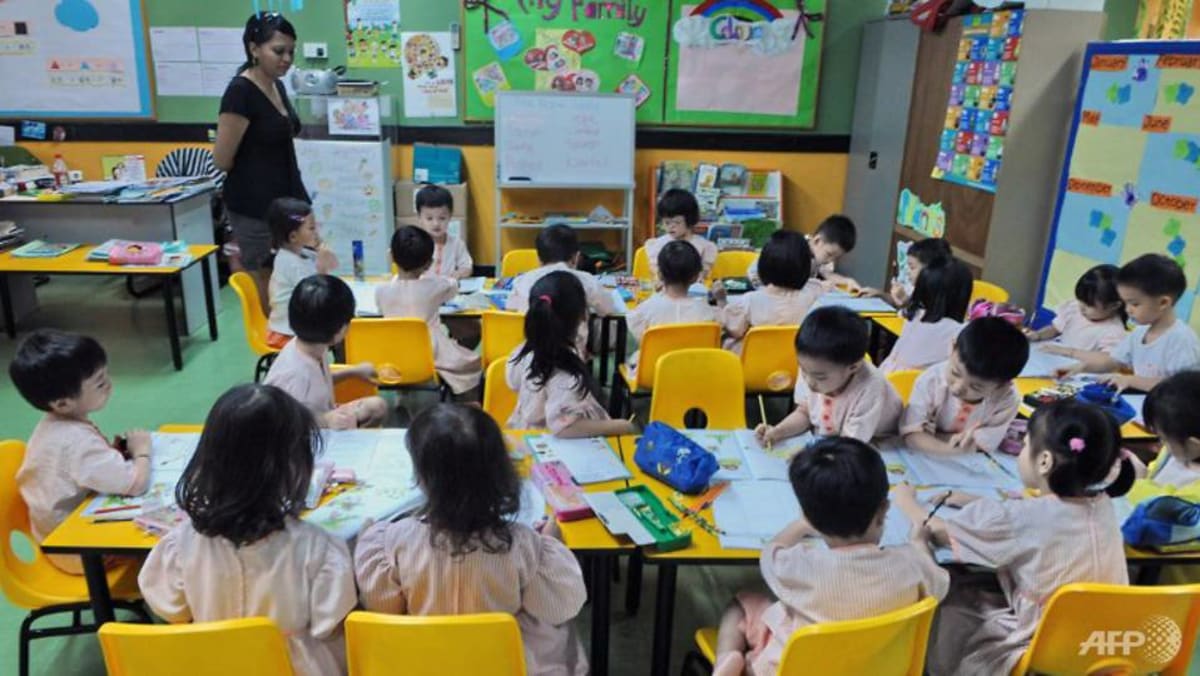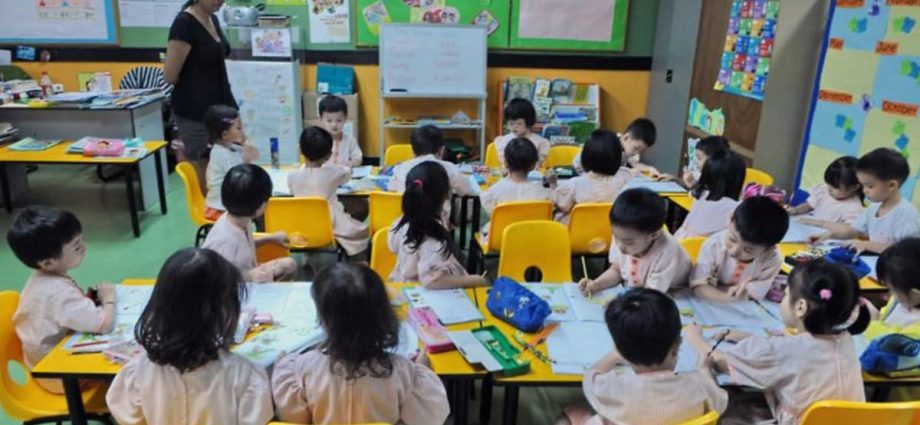
MORE PRE-SCHOOL PLACES
On top of lowered fee caps, ECDA will work with the five anchor operators to provide an additional 22,000 full-day pre-school places, said Mr Masagos.
The five anchor operators are PCF Sparkletots, My First Skool, MY World Preschool, Skool4Kidz and E-Bridge Pre-school.
Under the partner operator scheme, there are currently 331 centres run by 29 operators.
Of these 22,000 places, about 2,800 places will be set aside for infant care and about 4,400 places will be set aside for playgroups, said Mr Masagos.
“Most will be in new estates where young families are concentrated,” he added.
“For example, they could be in new estates like Punggol and Sengkang, as well as more mature estates with new BTOs like Tampines and Yishun,” said an ECDA spokesperson.
“Pre-schools are developed in tandem with new HDB flats so that residents can access pre-school services soon after they move in.”
The additional places set aside for infant care and playgroups will address the growing demand for pre-school services at younger ages, said ECDA in the press release.
Currently, about nine in 10 Singaporean children aged three to six are enrolled in pre-schools, and ECDA is seeing more families sending their children to centres before they turn three, said the spokesperson.
There are about 9,700 infants enrolled in infant care services currently, compared to 4,800 in 2017, the spokesperson noted.
“Due to the increasing demand, the pre-school situation is tight for the early years, especially in newer housing developments with many young families,” said the spokesperson.
This has been exacerbated by the COVID-19 pandemic due to construction delays, difficulties in securing alternate care arrangements, and parents preferring pre-schools closer to homes rather than workplaces, the spokesperson added.
“Newer pre-schools also take time to ramp up their infant and childcare operations, including hiring the necessary manpower, before they can reach full capacity,” said the spokesperson.
ECDA is on track to increase the number of Government-supported pre-school places so that 80 per cent of pre-schoolers can have a place in these pre-schools by 2025, up from 60 per cent currently, said Mr Masagos.
“Together, these moves further contribute to a supportive environment for families. Where families can access pre-school education for their children, and be assured of their affordability and quality,” he said.

